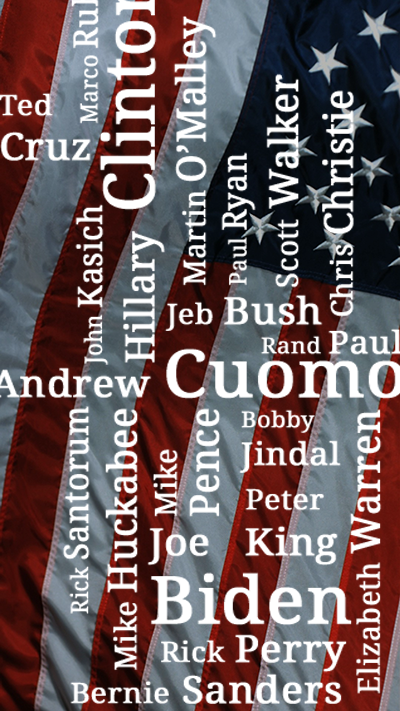
Iowa Still Wide Open
One thing to keep in mind regarding polls is that right now people are expressing their preferences, but those preferences are likely to shift for many between now and when the voting starts. Bloomberg Politics this morning explains how in Iowa, many remain either undecided or only loosely attached to their current preference:
Iowa Wracked by Indecision as Presidential Caucuses Near
Conversations with more than a dozen likely voters at events featuring former Florida Governor Jeb Bush and Senator Ted Cruz of Texas also revealed that many don't expect to make their minds up for at least another month and that the economy still matters, even as foreign policy has become a bigger part of the discussion following the terrorist attacks in Paris.
The voters' uncertainty suggests the race remains highly fluid, with the outcome not as locked down as polling numbers might suggest. That's not unusual this far ahead of the caucuses. “Organize, organize, organize and get hot at the end,” is a favorite expression of the state's political strategists.
In a Quinnipiac University poll of likely Iowa Republican caucus participants released on Nov. 24, real estate mogul Donald Trump led with 25 percent, followed by Cruz at 23 percent, retired neurosurgeon Ben Carson at 18 percent, and Senator Marco Rubio of Florida at 13 percent. Bush was at 4 percent, one point behind Senator Rand Paul of Kentucky, with all others scoring even lower.
The article includes interviews with several individuals suggesting it will be a very late decision for many:
Even among crowds that turned out to see Bush this week—in Goose Lake and larger cities like Newton and Waterloo—it was hard to find anyone who said they were absolutely decided on supporting him.
That was also the case at events for Cruz, who polls show is gaining momentum in the state. The senator from Texas drew about 300 people in the eastern Iowa town of Bettendorf to attend an event on a cold, rainy Monday evening. Cars were parked on the grass and a neighboring street because the parking lot outside the reception hall was filled.
John Schaff, a semi-retired farmer from Camanche, Iowa, is another one of the many undecideds. Before hearing Cruz speak in the Mississippi River town of Clinton, he said he's also considering Carson. Asked when he would decide, Schaff said “the day before.”
One other factor worth considering regarding the poll numbers – it appears that pollsters are “pushing” voters to make a selection even if they initially say they are undecided. Most of the polls being reported either have zero or an implausibly low number of undecided voters. While this can help shed light on where candidates stand, it conceals the fact that there remains a fairly large number of voters who could wind up going to one of the lower-ranked candidates, propelling them into contention on the basis of a surprisingly strong finish in Iowa, New Hampshire, or elsewhere.
If undecided voters comprise even 15 percent of Iowa caucus-goers, for example, and just a third of those in the end decide to support, say, Bush, that alone combined with a strong organization could propel the former Florida governor into a third-place finish, which would likely spur a storyline of a resurgent Bush. The same dynamic could apply to Christie, Kasich, Paul, or any number of other candidates.
The polls tell a very clear story at the moment, with Trump, Carson, Rubio, and Cruz generally snagging the best numbers. But quirks in polling and voters suggest this is etched in sand, unlikely to mirror the eventual results in Iowa.



